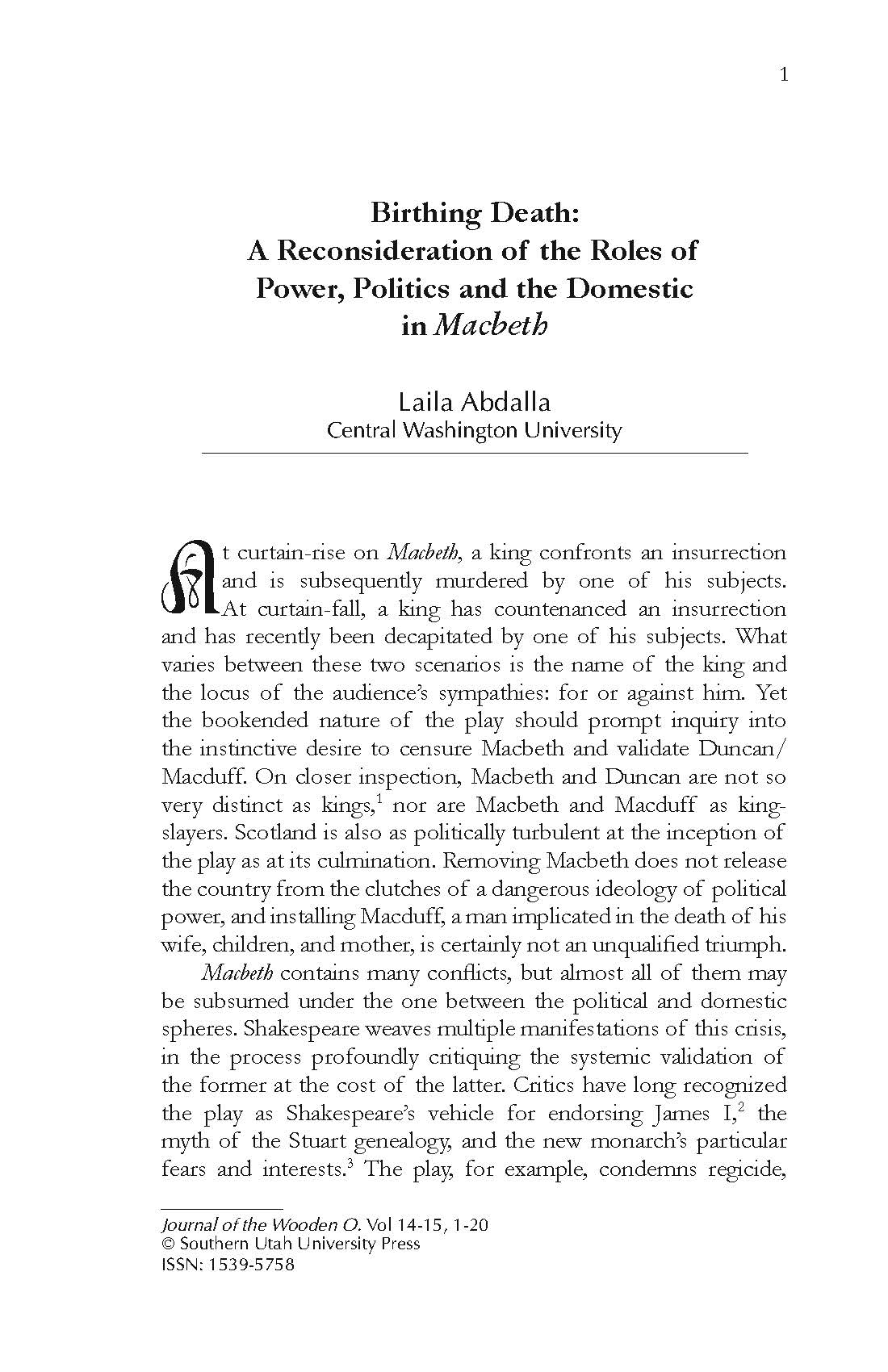Birthing Death: A Reconsideration of the Roles of Power, Politics and the Domestic in Macbeth
Main Article Content
Abstract
At curtain-rise on Macbeth, a king confronts an insurrection and is subsequently murdered by one of his subjects. At curtain-fall, a king has countenanced an insurrection and has recently been decapitated by one of his subjects. What varies between these two scenarios is the name of the king and the locus of the audience’s sympathies: for or against him. Yet the bookended nature of the play should prompt inquiry into the instinctive desire to censure Macbeth and validate Duncan/Macduff. On closer inspection, Macbeth and Duncan are not so very distinct as kings,1 nor are Macbeth and Macduff as king-slayers. Scotland is also as politically turbulent at the inception of the play as at its culmination. Removing Macbeth does not release the country from the clutches of a dangerous ideology of political power, and installing Macduff, a man implicated in the death of his wife, children, and mother, is certainly not an unqualified triumph.
